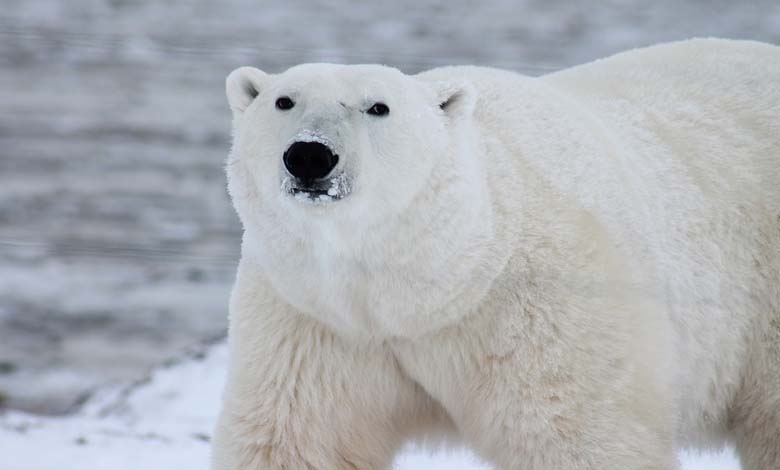The End of an Era: Euthanasia of Victoria, the UK’s Largest Female Polar Bear

British news agency PA Media reported on Wednesday that Victoria, a 28-year-old female polar bear, had been receiving specialized medical care for several weeks at the Highland Wildlife Park, managed by the Royal Zoological Society of Scotland near the town of Kingussie. This announcement follows the difficult decision to euthanize this polar bear due to a gradual decline in her health, directly linked to her advanced age.
-
Can Artificial Intelligence Find a Way to Understand Animal Sounds?
-
Celebrities and Owning Wild Animals: A Rare Hobby or a Showoff?
Victoria was recognized as the largest female polar bear in the United Kingdom and was among the park’s most iconic residents. Born in captivity, she lived an exceptionally long life — well beyond the natural lifespan of her species, typically estimated between 15 and 18 years in the wild. Her presence helped raise awareness among thousands of visitors about the vulnerability of polar bears in their natural habitat, which is increasingly threatened by climate change and the melting of Arctic sea ice.
-
A giant sea monster discovered in Morocco: an animal that devoured everything it saw
-
New AI-Powered Technologies Help the Blind Navigate Freely
The Highland Wildlife Park is renowned for its commitment to endangered species conservation and animal welfare. Veterinary and care teams did everything possible to ensure Victoria enjoyed the best quality of life during her final months. However, faced with complex medical issues — including mobility problems and age-related complications — veterinarians concluded that euthanasia was the most humane decision to end her suffering while respecting her dignity.
-
Damascus: Animal Arrival Delays Postpone Zoo Opening
-
Predatory Animals: Effective Alternatives to Insecticides
Victoria’s end-of-life care highlights several fundamental questions regarding the management of aging animals in captivity, a relatively underexplored topic in zoology. How can we reconcile the exceptional longevity of captive animals with their quality of life? What are the current limits of veterinary medicine in prolonging the lives of these species without pain? Victoria’s case also emphasizes the importance of rethinking medical and psychological care protocols for elderly animals, especially large carnivores like polar bears.
-
Environmental Shift: Sharks Enter the Shallow Waters of the Eastern Mediterranean
-
Giant Wolves Cloned: Scientists Bring Back a Species Extinct for 10,000 Years
Moreover, Victoria’s passing reminds us of the urgent need to continue and strengthen global conservation efforts for endangered species. The polar bear is considered a key indicator of climate change effects: the reduction of sea ice drastically diminishes its habitat and hunting opportunities. Zoological programs play a crucial role in scientific research and public awareness, shedding light on the environmental challenges affecting these animals.
-
Why do the sizes of animals shrink over time?
-
Cats accused of killing 1.5 billion animals annually… Details
Victoria leaves behind a valuable legacy, not only as an ambassador of her species but also as a living symbol of the challenges wildlife faces amid ecological upheavals. Her life in captivity has helped improve understanding of polar bears’ specific needs and advance veterinary care and environmental enrichment protocols.
Finally, this sad event should encourage zoological parks, scientists, and environmental advocates to intensify efforts to ensure the survival of endangered species, both in the wild and in protected environments. Victoria’s memory remains a powerful call to collective responsibility for global biodiversity.
-
The world’s fastest land animal is facing extinction… Why?
-
Libya: Moving Sea Turtle Nests to Protect Them from Extinction
-
Weighing 18 Kilograms: Death of “Crumbs,” the World’s Fattest Cat
-
A one-ton snake discovered in India
-
Iran: One of the World’s Rarest Wild Cats Dies
-
Tragic Incident: Two Elephants Lost Due to Flash Floods in Thailand
-
Thailand Executes 125 Crocodiles Due to Floods












